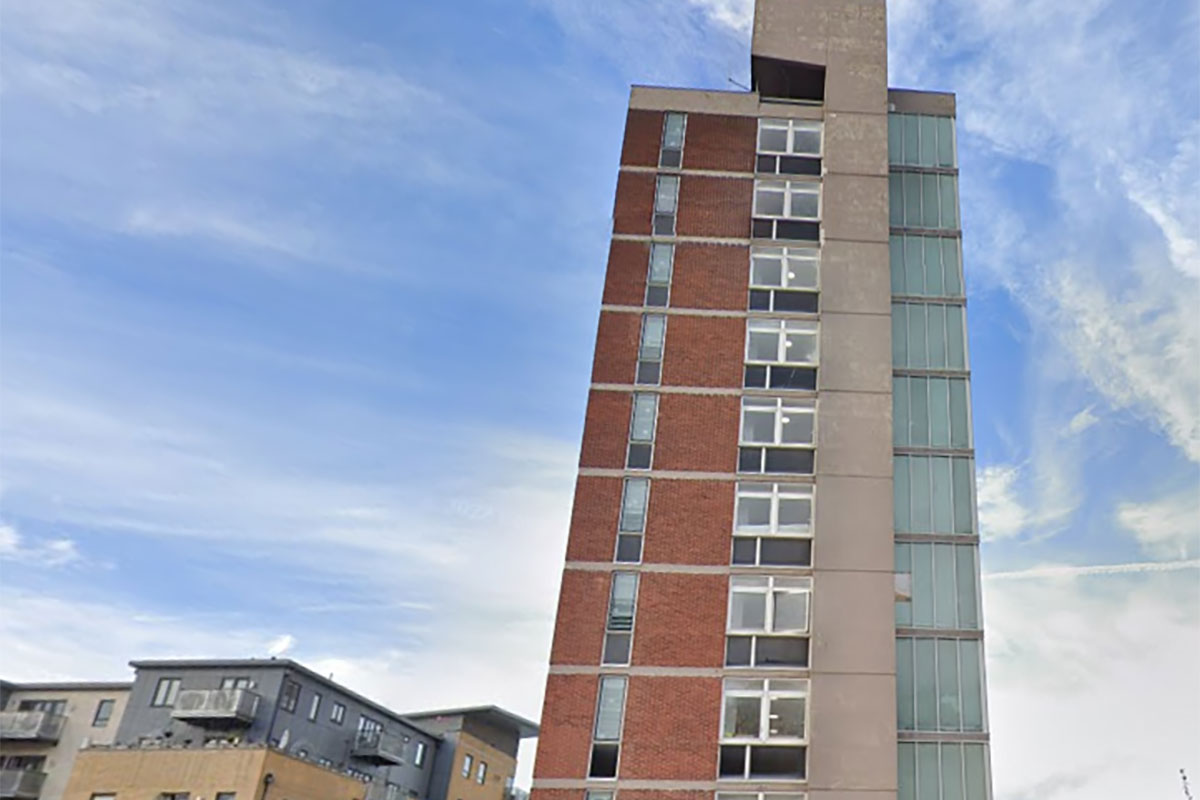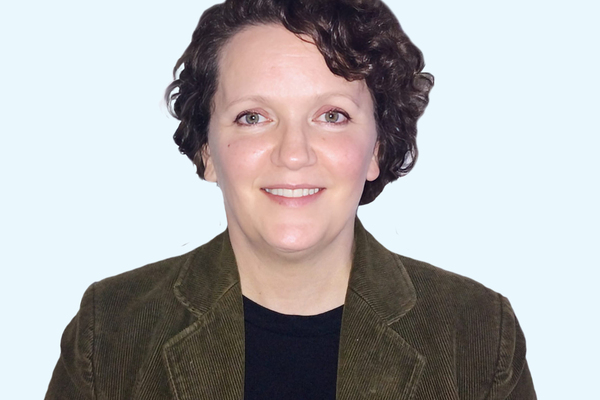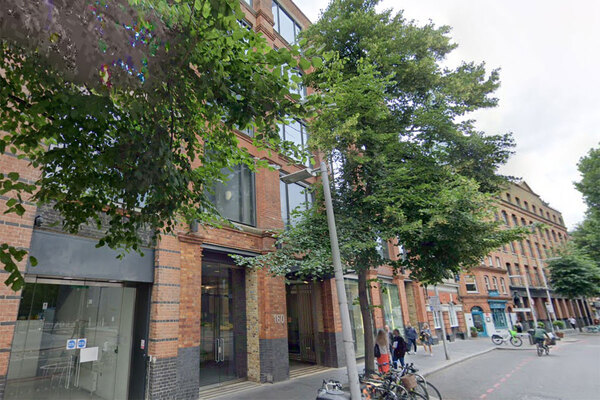Jahanara Rajkoomar: back in the heart of the community
Rounding off Inside Housing’s new leaders special, Jahanara Rajkoomar talks to Katharine Swindells about working for a small housing association versus a big landlord, and her journey to become director of customer services at Gateway
Jahanara Rajkoomar is east London through and through, ever since her family moved to a council house in Hackney from Bangladesh when she was a child. And now she is back, sitting in her office in Tower Hamlets, in her role as director of customer services for 3,000-home housing association Gateway.
“I’ve kind of been pulled back into the heart of what represents my community,” she tells Inside Housing over a video call.
“Looking out now from my office, I can see my team out there: a really diverse team of people, who genuinely reflect the communities that we serve.”
“Very few people exercise any of their rights when they are privately renting. You don’t want to rock the boat, because what if they evict you? I don’t think the security that we as social housing providers provide is given as much importance as it should be”
Ms Rajkoomar took up the role in March. The months since have been a big adjustment compared with her previous experiences at Metropolitan Thames Valley and Hyde Group, which have 25,000 and 43,000 homes respectively, and cover huge swathes of the South of England. The majority of Gateway’s properties are concentrated in Tower Hamlets, but it has ambitions to spread across Newham and Hackney.
Ms Rajkoomar belongs to one of the many families who has had to move further out of London because of rising rents, and she sees social housing’s role in the city’s affordability crisis as more vital than ever.
“It’s that instability of not knowing how much your rent is going to go up by and if you’re going to be able to afford it,” she says.
“Very few people exercise any of their rights when they are privately renting. You don’t want to rock the boat, because what if they evict you? I don’t think the security that we as social housing providers provide is given as much importance as it should be.”
Ms Rajkoomar’s entrance into the housing sector was “accidental”, she says. She was a single parent living in Birmingham, part-way through her undergraduate degree in law, and had “left it to the last minute” to find work experience. The only place left was the Citizens Advice Bureau, but that work experience turned into volunteering, then into a full-time job, effectively ending her law career before it had begun.
She developed an expertise in debt and financial inclusion, and then in 2009 took a role as financial inclusion manager at Hyde Group, which marked the beginning of her transition into a now 15-year career in housing associations. It also changed her view of housing associations, who she’d always seen as “the bad guys” because of her advice experience.
“I really got to understand the role that housing associations play, the impact that we can make, just even by giving people a roof over their heads,” she says. “I think one reason I have stayed in housing is because it really showed me that social housing is such a special thing that we have in this country, because for the people who are at the margins of society, social housing acts as a safety net.”
There is a misconception, she says, that smaller housing associations are easier, a belief she shared before her role here. In reality, she says, the much fewer resources means all the staff, herself included, have to cover lots of different ground, and be more multi-skilled and adaptable.
“For me it’s not a statement on my own social class, it’s just where I lived, and I look back on that with such joy”
For example, she says, Gateway’s one complaints co-ordinator also runs all the feedback analysis and implementation. Ms Rajkoomar herself has spent many weekends doing policy updates and reading the fine-print of proposed changes to the consumer standards, to make sure Gateway is keeping up. Despite the heavy workload, Ms Rajkoomar says that the new regulatory framework is crucial in reminding the sector of its core mission, which some have “veered away” from.
“Many housing organisations became very transactional and took on a very transactional role with the tenants,” she says. “And that’s why we have tighter regulation, to get us to do the thing that we should have been doing in the first place – keeping the person in mind rather than that transaction.”
Taking this job was a full-circle moment: when Ms Rajkoomar moved to the UK as a child in the 1980s, her family spent around 18 months sofa-surfing and in temporary accommodation in a B&B, before receiving a three-bedroom council flat on an estate a stone’s throw from Hackney’s Broadway Market. “It was the first proper secure home that we had in this country and it became my base, it gave me my identity,” she says.
But when asked about whether it is important that the social housing sector is led by people who grew up in it, Ms Rajkoomar is a self-declared cynic. Some wear their social housing upbringing “like a badge of honour, because now they are so far away from social housing”, she says. “For me it’s not a statement on my own social class, it’s just where I lived, and I look back on that with such joy.”
And when she reflects on her time in temporary accommodation, more than being squeezed into one bedroom or sharing a bathroom with other families, she remembers the novelty of the full English breakfast they were served in the mornings. It wasn’t an easy time for her or her parents, but she knows it is a far cry from the housing conditions of so many families today.
“I was really young, but the difference in the conditions of that experience compared to the experience of many now is very different,” she says. “And we were only there for a few months. If we were in that place for years and years, I don’t think I would remember it as these rose-tinted, nostalgic memories as I do now.”
Her driving ethos, she says, is that at the core of their work, is not a tenant but an individual human being, who deserves to be treated as such. “Fundamentally everything that we do is to look after the people that we serve.”
Meet the sector’s new leaders
Who are the housing leaders that are going to be driving the sector forward to meet the challenges facing the sector?
To answer that question, Inside Housing has interviewed some of the sector’s new guard; that is, leaders who have taken up their first chief executive or chairing role, or are otherwise rising up the ranks.
In-depth versions of all these interviews will be published over the course of the next couple of weeks.
Click below to read other live interviews below:
Andy Hulme: from housing banker, to housing chief
Andy Hulme moved from the banking sector to head up Hyde Group. He talks to Hannah Fearn
Charmaine Simei: ‘Yes, social housing is an honourable profession’
Grainne Cuffe talks to the chief executive of Tuntum about the tragedy that sparked her interest in housing, and leading a small landlord
Reena Purchase is ‘coming full circle’
Reena Purchase has stepped into the chair role at African Refugee Housing Action Group, at a difficult time politically for organisations supporting refugees and migrants. Jess McCabe reports
Alana Durnin: ‘Floods happen. Housing is dynamic and you need to be resilient’
As chief executive of Inverclyde’s tiny Cloch Housing, Alana Durnin is navigating some very difficult waters, from high interest rates to floods. Jess McCabe reports
Elly Hoult: ‘It’s really exciting that there is a focus on being professional’
Hannah Fern talks to Peabody chief operating officer and newly appointed vice-president of the Chartered Institute of Housing about lessons learned on housing’s frontline
Jigsaw CEO Brian Moran: ‘We don’t do daft things’
Jigsaw’s new chief executive sits down with James Riding to talk about nurturing new talent in the sector, the challenges of building and retrofit, and what he makes of Labour’s housing plans
Debi Marriott-Lavery: the non-conformist chief executive
Debi Marriot-Lavery talks to Katharine Swindells about her career path from A&E ward to the boardroom of Magenta Living
Jahanara Rajkoomar: back in the heart of the community
Jahanara Rajkoomar talks to Katharine Swindells about working for a small housing association versus a big landlord, and her journey to become director of customer services at Gateway
Sign up for our homelessness bulletin
Already have an account? Click here to manage your newsletters














